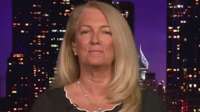
CHICAGO - Walmart can't make a U.S. Army veteran pay them $36,000 to cover the company's legal bills after defeating the soldier's lawsuit claiming the world's largest retailer had violated his rights under Illinois law by selling posters featuring a photo of him on patrol in Afghanistan without his consent.
On Aug. 12, U.S. District Judge Edmond Chang said he did not believe the state law, known as the Illinois Right of Publicity Act, allowed Walmart to collect the attorney fees from plaintiff Nichols Giovannelli, because, Chang said, Giovannelli had a legitimate legal claim that may have been filed too late, but was not filed in bad faith.
The dispute first landed in court in 2021.
At that time, Giovannelli said he became aware that Walmart had been selling posters featuring a picture of him in action while in service for the U.S. Army in Afghanistan.
According to court documents, the image had been captured by a U.S. Army photographer while Giovannelli was on a combat patrol at some point during the U.S. Armed Forces operations in Afghanistan.
According to court documents, during his years of service in the Army from 2007 until he was medically discharged in 2015, Giovannelli served in more than 100 combat patrols, including multiple tours of duty in Afghanistan. According to his complaint, Giovannelli "was awarded the Purple Heart, Combat Infantry Badge, and Army Commendation with V Device, for acts of heroism while involved in conflict with an armed enemy."
In his lawsuit, Giovannelli asserted that seeing the image on the poster "retriggered his post-traumatic stress disorder."
Giovannelli accused Walmart of violating his rights under the IRPA law and inflicting emotional distress on him. The IRPA law can allow individual plaintiffs to sue businesses for using their image, likeness or identity for commercial purposes without the plaintiffs' consent.
In this case, Giovaennelli asserted Walmart had no right to use the photo to sell posters without his consent.
The emotional distress claim was dismissed. And then, Walmart later won summary judgment in the case under Giovannelli's IRPA claim, when the court determined Giovannelli had filed his lawsuit beyond the IRPA law's statute of limitations.
Under the IRPA law, plaintiffs generally have one year from the time their image or likeness is used to file a lawsuit accusing a company of violating the state law.
In this case, Walmart said Giovannelli had waited at least four years too long to sue the company.
In response, Giovannelli had asserted his lawsuit should be allowed under an exception in the law, extending that statute of limitations.
Ultimately, Giovannelli lost on those claims.
However, after securing victory, Walmart then filed a motion, asking the court to force Giovannelli to pay the retailer more than $36,000 to cover their legal fees.
Walmart pointed to a so-called "fee-shifting" provision in the IRPA law, which generally gives plaintiffs the right to demand defendants who lose against an IRPA claim to pay their legal fees.
Walmart argued that fee-shifting provision should also apply for defendants who defeat IRPA claims.
Judge Chang, however, disagreed with that interpretation. The judge said the fee-shifting provision could only apply to plaintiffs if the defendants could show the plaintiffs had filed their IRPA action in "bad faith" - meaning, they filed a lawsuit knowing they had no chance to succeed and only wished to drag a defendant into court.
In this case, Chang said "Giovannelli's arguments contesting the statute of limitations defense were not frivolous; rather, thay were founded upon a reasonable (though losing) request that this Court apply an oft-litigated exception to the statute of limitations."
However, in a footnote attached to the decision, Judge Chang went further, saying even a finding of bad faith may not have been enough to persuade him to order Giovannelli to pay Walmart's legal bills.
The judge said a finding of bad faith is just one of the factors he would have used to decide the matter.
" Here, given the reasonableness of the arguments presented against the limitations defense, the Court still would have found an award of attorneys’ fees to Walmart unwarranted even if a consideration of the Giovannelli’s bad faith were merely a factor as opposed to a threshold requirement," the judge wrote. "This conclusion highlights just how aggressive it was for Walmart to seek fees from a military veteran who is allegedly suffering from post-traumatic stress disorder arising from service to his country."
Giovannelli is represented in the action by attorneys Craig D. Tobin and Jessica Firlej, of the firm of Tobin & Munoz, of Chicago.
Walmart was represented by attorney James K. Borcia and others with the firm of Tressler LLP, of Chicago.






